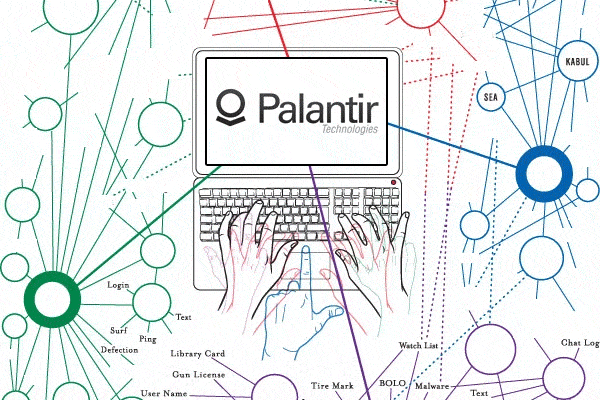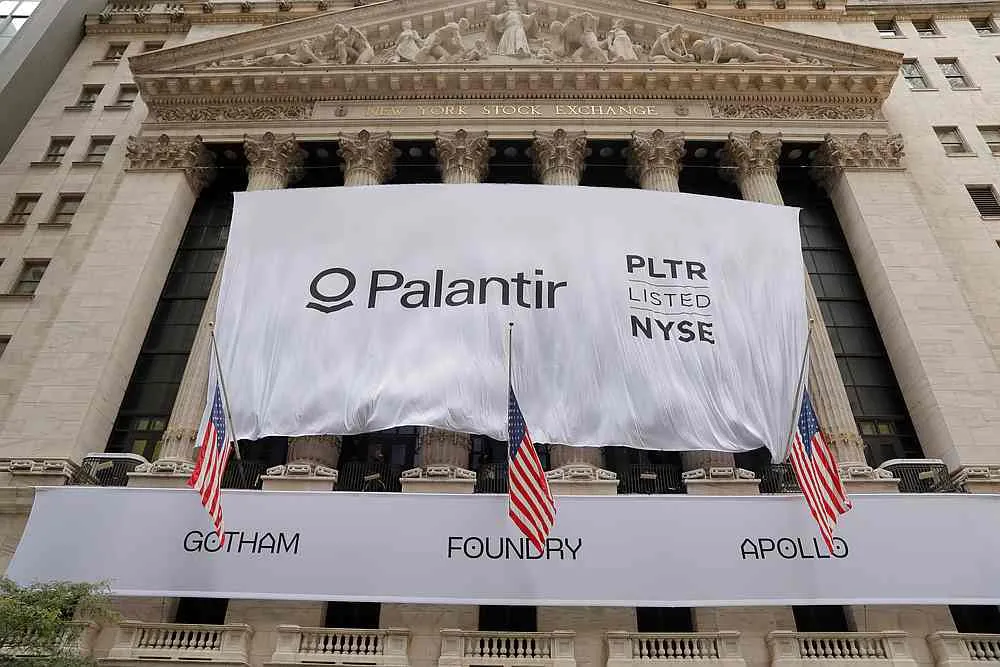
The Ghost Company You Never See but Always Feels
Every time you unlock your phone, walk past a CCTV camera, or post something on social media, chances are Palantir Technologies is quietly learning something about you. You’ve probably never used Palantir’s products directly, but its algorithms may already know where you live, who you talk to, and even predict what you might do next.
Unlike flashy Silicon Valley brands like Apple, Google, or Tesla, Palantir thrives in secrecy. It calls itself a software company—but critics argue it’s more like a weapon of mass surveillance. It doesn’t just track data. It helps governments wage wars, hunt terrorists, and yes—decide who lives and who dies.
So what is Palantir really? And why do some experts warn it could be the most dangerous tech company on Earth?
Let’s dive deep into the rise of Palantir, its CIA-backed origins, its role in global wars, and its mission to cement U.S. dominance through AI surveillance.
What Is Palantir and Why Should You Care?
At first glance, Palantir is just another Silicon Valley data company. It sells software that helps organizations make sense of huge amounts of information. But unlike your typical analytics tool, Palantir is designed for power, intelligence, and control.
- Founded in 2003 by Peter Thiel (PayPal co-founder and early Facebook investor), Palantir was originally funded by In-Q-Tel, the CIA’s venture capital arm.
- Its first mission? Build a digital platform that could track terrorists the way PayPal tracked fraud.
- Its first clients? The U.S. military, the CIA, and law enforcement.
From its earliest days, Palantir wasn’t about advertising, shopping, or consumer tech. It was about spying, predicting, and controlling human behavior.
Today, Palantir runs three main platforms:
- Palantir Gotham – built for military, intelligence agencies, and governments.
- Palantir Foundry – designed for corporations, finance, and logistics.
- Palantir Apollo – a system that lets Palantir deploy updates worldwide instantly.
In other words, Palantir isn’t in your pocket like Facebook or TikTok—it’s in the control rooms where wars are planned and economies are managed.
Palantir’s Origin Story – A Startup for Spies
Most tech startups dream of becoming the next Instagram or Uber. Palantir dreamed of becoming the eyes and ears of the American intelligence state.
- Peter Thiel pitched the idea as a tool to prevent another 9/11.
- The CIA jumped in with funding, seeing Palantir as a digital brain for counterterrorism.
- Early projects included tracking terrorist networks in Iraq and Afghanistan.
But here’s the dark side: Palantir’s tools don’t just track terrorists. They track everyone—because the only way to find the “bad guys” is to map entire societies.
Emails, phone records, financial transactions, even facial recognition data—Palantir ingests it all.
That’s why critics call it “a Google for spies.”

The Tech Company That Actually Kills People
Here’s where Palantir moves beyond creepy surveillance into something far scarier.
Palantir’s Gotham platform is used by the U.S. military for “targeting decisions.” That means soldiers and drone operators rely on Palantir data to decide who gets bombed.
- In Afghanistan, Palantir was credited with helping soldiers identify IED networks.
- In Iraq, Palantir mapped insurgent groups.
- In drone warfare, Palantir has helped the military pick targets with “data certainty.”
But data certainty doesn’t mean moral certainty. If Palantir flags someone as a threat, they may be put on a kill list.
That’s why human rights activists warn: Palantir isn’t just a data company—it’s a company that indirectly kills people with algorithms.

How Palantir Quietly Took Over the World
The scariest thing about Palantir? Its invisibility.
You never see its logo in app stores, but its influence is everywhere:
- U.S. Immigration and Customs Enforcement (ICE): Used Palantir to track, detain, and deport migrants.
- Police Departments: From Los Angeles to New Orleans, Palantir has powered predictive policing.
- COVID-19: During the pandemic, Palantir built the U.S. government’s central database for vaccine distribution.
- Wall Street: Hedge funds and banks use Palantir to spot financial risks before anyone else.
- The NHS in the UK: Palantir is running parts of Britain’s healthcare data system.
Palantir thrives because it sells “control in chaos.” Whether it’s a warzone, a financial crisis, or a pandemic, Palantir promises governments: We can see the patterns you can’t.

Palantir and U.S. Dominance – The AI Weapon of the Future
Forget missiles. Forget tanks. The real weapon of the 21st century is data dominance.
Palantir’s leaders openly admit their mission is to cement U.S. supremacy through AI.
CEO Alex Karp has said:
“We build the software that makes the West the strongest in the world.”
Translation? Palantir wants to make sure the U.S. never loses its edge in war, surveillance, and finance.
This is why Palantir is aggressively expanding into:
- AI-driven warfare (autonomous targeting systems).
- National security contracts (billions in U.S. defense spending).
- Corporate control (making Fortune 500 companies reliant on Palantir).
In short, Palantir isn’t just building software—it’s building a digital empire for America.

Why Wall Street Worships Palantir
Here’s the twist: while activists warn about Palantir’s surveillance empire, investors can’t get enough of it.
- Palantir went public in 2020 and quickly became one of the most talked-about stocks.
- Analysts hype it as the “operating system for the world.”
- Its contracts with governments make it recession-proof—because war and surveillance never go out of business.
But here’s the catch: Palantir is notoriously secretive about its deals, its profits, and its future AI weapons.
For Wall Street, that mystery is part of the allure. For the public, it’s part of the danger.

Civil Liberties Under Threat – Who Regulates Palantir?
The biggest question isn’t what Palantir can do—it’s who, if anyone, is stopping it.
Right now, Palantir operates in a gray zone of law and ethics.
- It collects personal data without public knowledge.
- It provides tools that lead to life-or-death decisions.
- It embeds itself in government systems that are almost impossible to remove.
Civil liberty groups warn that Palantir is building the infrastructure of a surveillance state—not just in the U.S., but globally.
The terrifying part? There’s no real oversight. No elected officials vote on Palantir’s algorithms. Yet those algorithms can decide who gets arrested, who gets deported, or who gets killed.

Palantir’s Critics vs. Defenders
Palantir’s defenders say:
- It prevents terrorist attacks.
- It helps fight crime.
- It saves lives in war zones.
- It ensures U.S. global security.
But critics counter:
- It enables mass surveillance.
- It violates privacy.
- It fuels drone assassinations.
- It empowers authoritarian governments.
The truth lies in between: Palantir is powerful, useful, and dangerous all at once.

Palantir’s Future – AI, Wars, and Global Domination
Looking ahead, Palantir wants to become the global AI backbone.
- It’s developing battlefield AI that can run autonomous operations.
- It’s moving into space defense with satellite tracking.
- It’s expanding into every U.S. ally, from NATO to Japan.
Imagine a world where every government depends on Palantir for intelligence, security, and logistics. That’s the future Palantir is building—a future where whoever controls Palantir controls the world.

Conclusion: Should the World Fear Palantir?
Here’s the chilling truth: Palantir isn’t science fiction. It’s already here.
It tracks you, even if you’ve never heard of it.
It helps decide wars, even if you never voted for it.
It builds AI dominance, even if you never asked for it.
Some call it a guardian angel of security. Others call it a digital grim reaper.
But one thing is certain: Palantir isn’t just another tech company. It’s the operating system of global power.The question is no longer what Palantir does—it’s who will stop it, if anyone can.


